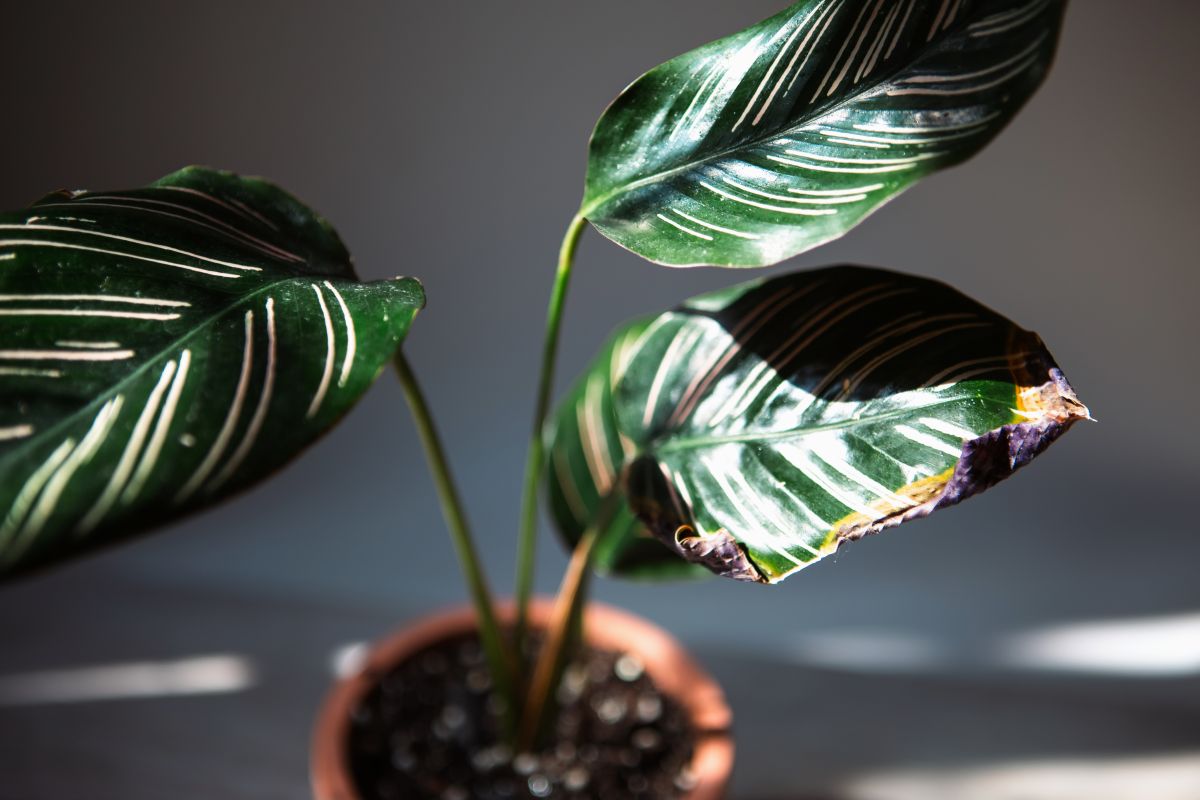Root Aphids are ground aphids in soil. They are common houseplant pests that are quite small and feed off the roots of plants. These tiny soil aphids are related to regular aphids, but they do have some differences.
One of those differences is their size. Because root aphids are smaller in size, it can be quite difficult to spot them. They also have a fast reproduction system, laying multiple root aphid eggs at a time.
Unlike whiteflies, the root aphid does not have protection against chemical control. So it can be easy to get rid of them. But large-scale infestations can be devastating to affected plants. This is why you need to identify them on time to stop the infestation.
Identifying The Root Aphid

The tiny size of the root bug makes it difficult to spot or identify them. The adult root aphid has a pear-shaped body with an antenna. Its legs are a little shorter than the regular aphids when compared together. And they come in different colors which can range from white to brown and pink.
Root aphids produce a white form of honeydew. This particular residue is chalky and resembles the same produced by mealybugs. There are also winged root aphids that are fitted with a cornicle by the tail of the abdomen.
It is easy to mistake root aphids for soil mites. This is because they share a lot of similarities. But, the major difference is that root aphids have extra legs than soil mites.
The Life Cycle of Root Aphids
Soil aphids have a special life cycle. They adopt an asexual form of reproduction. This leads to them attaching eggs to stems and leaves parts that are close to the soil. After some time, the eggs hatch into root aphid nymphs that fall into the soil.
As nymphs, root aphids are wingless and bore into the root tissue of plants. They do this with their piercing and sucking mouthparts. As the root aphid damages the plant tissue, they develop wings to help them in relocating to a healthy plant.
It takes 10 days for a root aphid egg to become an adult. And the adult root aphid leaves a maximum of 30 days on average.
Signs Of Root Aphids Damage on Plant
Because root bugs feed on the root systems of plants, the plant often looks stressed. There should be clear visible signs of stunted growth. In addition to that, you can also notice yellow discoloration on the leaves.
Other visible root aphids symptoms include wilted leaves and damage to the plant soil. Most of these systems are caused by a lack of nutrients in the plants. This is because root aphids feed on these nutrients which could be used by the plant.
You can also spot lots of ants on plant soil suffering from root aphid infestation. This is because ants are attracted to the white substance secreted by these root bugs. They also help in transporting wingless root aphids to new plants.
How To Control Root Aphids In Soil
- If you fail to notice a root aphid infestation on time, the chances are, it might be too late. This is why it is recommended that you dispose of plants with severe infestations. If you keep them, you risk a further devastating infestation of other plants.
- Before bringing a new plant into your greenhouse, do a proper check on the soil. Inspect for signs of root aphid pests in the soil.
- You can introduce root aphid predators into the plant soil. The ladybug is a great root aphid killer that you can try. Parasitic wasps are also great options.
- For minor infestations, you can make use of neem oil. It is great for root aphids treatment as it is both organic and effective.
- You can employ the use of yellow sticky papers. This can be placed on the soil to trap a few moving root aphids.
- Products with pyrethrum are quite good in treating root aphids. Use a pyrethrum root aphid spray on the plant soil.
Frequently Asked Questions
No, root aphids rather deposit their eggs on the leaves and stems of plants. That way they can hatch and fall into the plant’s soil.
Aphids hate the cold winter and could spend the majority of that time hiding. Once the climate is warmer they take flight into homes through open windows.
Ladybugs, parasitic wasps, and other predatory insects are best at killing root aphids.
Yes, vinegar mixed with water can be used as a powerful spray for aphids.
Cinnamon spice can be an effective aphid killer. You can mix it with water to form a powerful insecticide spray.





